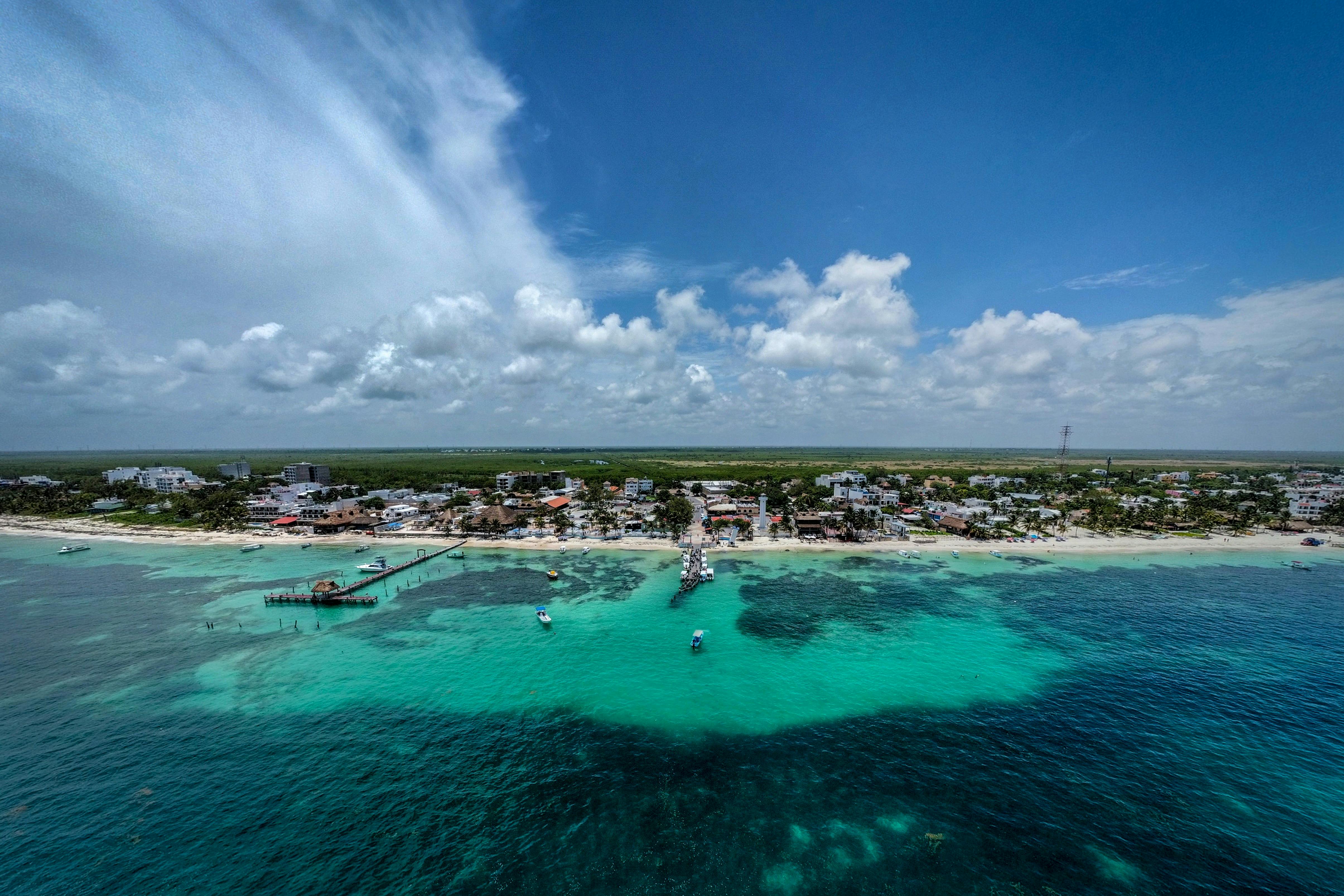Have you ever considered how your travel habits impact the environment? With sustainable travel gaining momentum, it’s time we take a closer look at the trends redefining the way we explore the world.

What is Sustainable Travel?
You might be wondering exactly what sustainable travel entails. In essence, it’s about making travel decisions that ensure a positive impact on the environment, society, and economy. It’s a holistic approach that considers minimizing carbon footprints, supporting local communities, and preserving cultural heritage and natural resources.
The Importance of Sustainable Travel
Sustainable travel is no longer a niche concern. It’s a global movement. Why? Because travel and tourism contribute significantly to global carbon emissions. The goal here is to protect the very places we love to visit so they can be enjoyed by future generations.
Benefits of Sustainable Travel
- Environmental Protection: Reducing waste and pollution preserves natural habitats and biodiversity.
- Cultural Preservation: Respecting and preserving local cultures and traditions enhances the travel experience.
- Economic Support: Supporting local businesses ensures that tourism benefits the local economy.
1. Eco-Friendly Accommodations
Green Hotels and Resorts
Ever heard of green hotels? They prioritize environmental stewardship by incorporating energy-efficient systems, recycling programs, and locally-sourced food.
Sustainable Stays
Even on platforms like Airbnb, you can find eco-friendly stays. Many hosts are making efforts by using solar power, offering recycling facilities, or focusing on water conservation.
2. Renewable Energy-Powered Transportation
Electric and Hybrid Vehicles
Using electric and hybrid vehicles for your travels can significantly reduce your carbon footprint. Companies like Tesla are revolutionizing the landscape with electric cars that make sustainable travel a breeze.
Public Transportation
Taking public transportation reduces fuel consumption. Cities across the globe are increasingly investing in electric buses and trains to cut down emissions.

3. Slow Travel Movement
What is Slow Travel?
Slow travel is all about taking your time to explore a locale deeply, rather than rushing through a checklist of tourist spots. It emphasizes meaningful experiences over quantity.
Benefits of Slow Travel
- Reduces Stress: Allows you to relax and enjoy your surroundings, rather than racing against the clock.
- Deeper Connections: Offers a more authentic understanding of the culture, people, and places.
4. Ethical Wildlife Tourism
Responsible Wildlife Experiences
Engage in activities that respect and protect wildlife. Avoid establishments that exploit animals for entertainment and instead, look for conservation-focused tours.
Certified Tours and Experiences
Opt for certified wildlife tours that ensure ethical practices. Organizations like World Animal Protection offer guidelines to help you choose responsibly.

5. Community-Based Tourism
What is Community-Based Tourism?
This form of tourism involves local communities offering tourists a chance to experience their way of life. It’s mutually beneficial as it supports local economies and offers travelers a unique, authentic experience.
Pros of Community-Based Tourism
- Economic Benefits: Tourism revenue goes directly to the community.
- Cultural Exchange: Both travelers and locals gain new perspectives and insights.
6. Eco-Friendly Products and Packing
Sustainable Travel Products
From reusable water bottles to biodegradable toiletries, there are countless products designed to make your travels more environmentally friendly.
Zero-Waste Travel Kits
Consider assembling a zero-waste travel kit. Items such as bamboo utensils, cloth napkins, and refillable containers can make a substantial difference.

7. Support Local and Organic Food
Farm-to-Table Dining
Seek out restaurants that use locally-sourced, organic ingredients. This supports local farmers and reduces the carbon footprint associated with food transportation.
Markets and Local Vendors
Exploring local markets gives you a taste of regional specialties and helps sustain local economies.
8. Green Certifications
Ecotourism Certifications
Look for accommodations and tour operators with ecotourism certifications. Certifications from organizations like Green Key and EarthCheck indicate a commitment to sustainability.
Standards and Benefits
These certifications ensure that the entities adhere to high environmental standards, offering you peace of mind while you make eco-conscious choices.

9. Voluntourism
What is Voluntourism?
Combining volunteering with tourism, voluntourism allows you to give back to the communities you visit. It may involve teaching, conservation efforts, or community development.
Choosing Responsible Voluntourism
Be mindful of the voluntourism projects you select. Make sure they address genuine needs and benefit the local community rather than exploiting their vulnerabilities.
10. Cultural Sensitivity and Respect
Understanding Local Customs
Understanding and respecting local customs shows appreciation for the culture and fosters positive relationships. Research and be aware of cultural norms and practices before you travel.
Language and Communication
Learn a few phrases in the local language. A simple “hello” or “thank you” can go a long way in making connections and showing respect.
11. Digital Detox Travel
The Need for a Digital Detox
In a hyper-connected world, a digital detox can rejuvenate your mind and help you more fully engage with your surroundings.
Benefits
- Mental Health: Reduces stress and anxiety.
- Presence: Increases mindfulness and appreciation of your travel experiences.
12. Sustainable Travel Apps
Green Travel Technologies
There are numerous apps that can help you plan your sustainable travels. From carbon trackers to sustainable accommodation finders, technology is making eco-friendly travel more accessible.
Recommended Apps
- Ecosia: A search engine that plants trees.
- Happycow: Helps you find vegan and vegetarian food options.
- MapMyHike: Great for tracking your hiking routes while minimizing impact on trails.
13. Eco-Tourist Destinations
Top Sustainable Travel Destinations
Many places around the world are leading the way in sustainable tourism. Countries like Costa Rica, Bhutan, and New Zealand are known for their eco-friendly initiatives.
Why Choose These Destinations?
These destinations prioritize conservation and sustainable practices, making them perfect for the eco-conscious traveler.
14. Carbon Offsetting
What is Carbon Offsetting?
Offsetting your travel emissions involves investing in projects that reduce carbon dioxide. Many airlines and travel companies offer tools to calculate and offset your carbon footprint.
Effective Carbon Offset Programs
Choose reputable programs that invest in projects such as reforestation, renewable energy, and conservation.
15. Educating Yourself and Others
Continuous Learning
Stay informed about sustainable travel practices. Attend workshops, read articles, and participate in online forums dedicated to eco-friendly travel.
Sharing Knowledge
Share what you learn with fellow travelers. The more people are aware of the benefits and importance of sustainable travel, the greater the collective impact will be.
16. Sustainable Travel Mindset
Long-Term Commitment
Adopting a sustainable travel mindset isn’t a one-time decision; it’s an ongoing commitment to making responsible choices. Rethink your travel habits and strive to make more sustainable decisions in the long run.
Mindful Traveling
Be present, be respectful, and be aware of the impact your travels have on the planet and the people you encounter. A little bit of mindfulness can make a big difference.
Why These Trends Matter
The essence of sustainable travel is about creating a more responsible and mindful way to explore the world. The aim isn’t merely to minimize harm but to actively contribute to the well-being of the places and people you visit. These trends aren’t fleeting fads; they are vital steps towards a more sustainable future, showing that it’s entirely possible to have enriching travel experiences while caring for our planet.
Traveling sustainably is about personal growth as much as it’s about environmental stewardship. As you embrace these trends, you’ll find that they enhance your travel experiences, turning them into more meaningful journeys. Take the time to explore, to connect, and to appreciate the varied, beautiful world we live in, all while ensuring that it continues to thrive for years to come.
So next time you pack your bags, think about the choices you can make to travel more sustainably. From the smallest of actions to more significant commitments, every effort counts. Stay curious, stay kind, and always travel with a light footprint.
